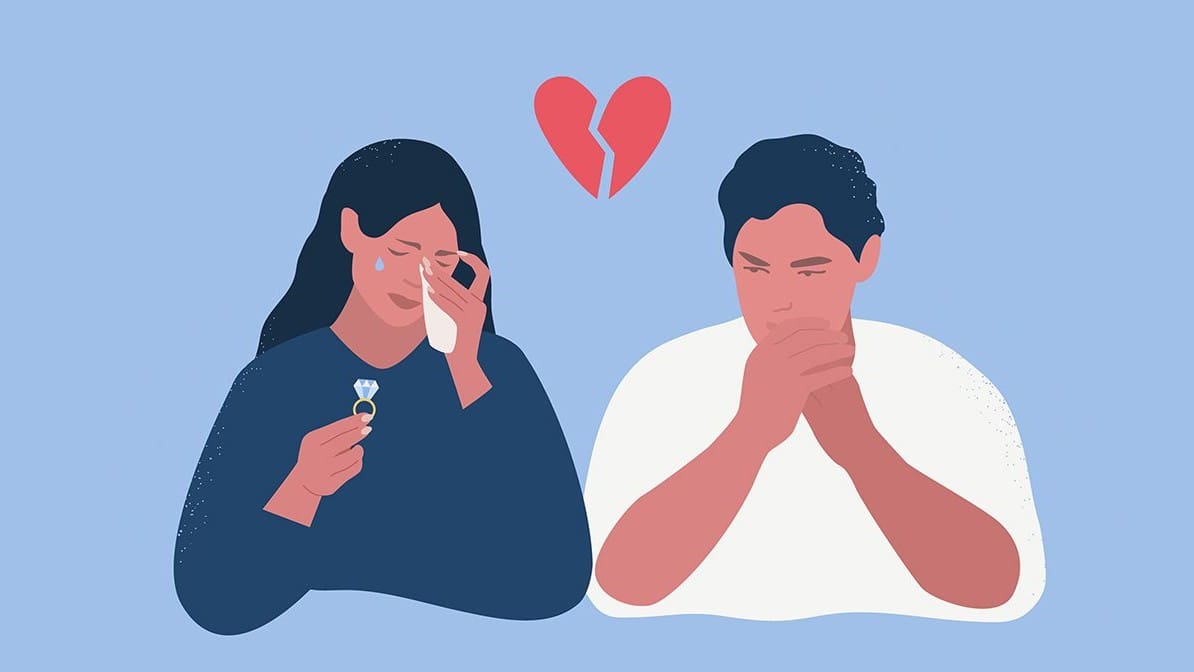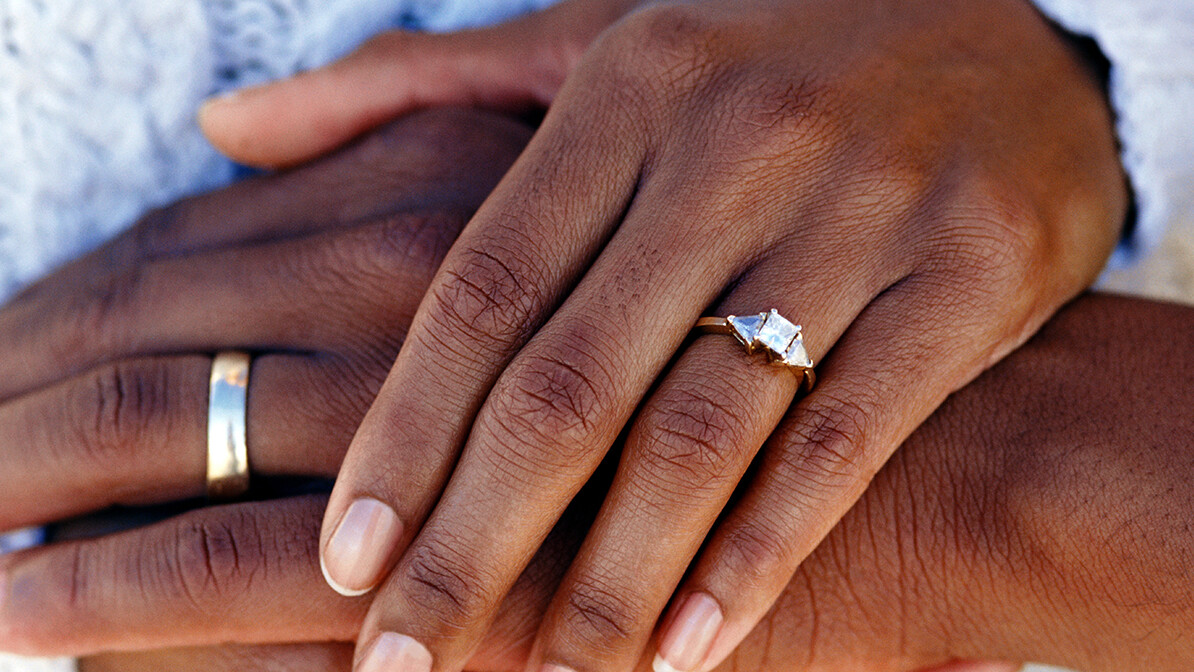- Home
- Relationships
- Lament and the Healing Process

Lament and the Healing Process
Lament is an important part of the redemption/healing process when pornography has devastated lives. I hope to convince you of the value of grieving losses in general. More specifically, I want you to make sure that three kinds of grief are taking place in your home. First, let your wife grieve the losses and pain she has experienced because of your sin. Second, learn to grieve with her; show her the compassion of Christ during her suffering. Third, learn to grieve your own losses, especially the loss of innocence.
Letting Her Lament

Has anyone ever betrayed your confidence? Maybe you had a friend in school that exposed your crush on a girl even though he swore that he would never tell. Perhaps you had a business partner who stole your ideas or work and used it to get a promotion that you deserved. Maybe you told a friend about a particular sin struggle, hoping that they would help you, but instead they spread the news through your friend group via the salacious gossip train. How hurt were you? How unloved did you feel? How betrayed did you feel? What did it do to your friendship? Do you still trust that person? Do you even want to see him anymore? Now amplify those feelings ten trillion times, and you can begin to relate to the pain that you have inflicted on your wife. Let her grieve that pain. It is important that you not only allow, but encourage, your wife to lament your sin and the impact it has had on her life.
As your wife grieves, you will need to give her space and time to do so. This may look like you silently supporting her in her grief. Pray to God silently in your heart on her behalf, and ask him to draw her near in his loving and protective arms. She will likely want and need to talk to someone else about the pain that she is feeling. Encourage her to do so. She is hurting because you have hurt her. Don’t try to deny or downplay the pain. Encourage her to express it to a friend who can help bear her burden and point her to Christ. As she does this, she is not gossiping, but grieving. Encourage her to take her concerns and hurts to God, who cares for her far better than you or any other friend could.
As her heart softens, she may share with you how your sin has affected her. Don’t get defensive; listen and learn from her. She may need an invitation to do this. Ask her, How has my sin affected you? What thoughts and feelings are you wrestling with? How has my sin brought temptation to you? She may not want to share with you at all. If that is the case, don’t push. Let her know you are willing to listen when she is willing to talk. Tell her that you want to know so that you will grow in love and compassion as you seek to put off your self-focused sin. If she gets upset and lashes out at you, don’t get defensive. Don’t fight back. Recognize that hurting people often hurt people. She is hurting because of your sin, so it is no surprise that you are the target of her attacks. Pray for her. Cast your cares and her cares on the Lord because he cares for both of you (1 Peter 5:7). It may be best to have this kind of conversation with a spiritual mentor or biblical counselor present, but that is not always necessary. Ask God for wisdom and patience as she laments and heals. We will discuss forgiveness and reconciliation later. There may be things that your wife says or does in her pain that need to be dealt with, but in the lament process, don’t focus on her sin; let her grieve yours. This is a great way to demonstrate that you love her and that you are genuinely grieved by your sin.
Lament With Her
“Weep with those who weep” (Romans 12:15). This short phrase is such a powerful one for the care of souls. Christ is the most compassionate person who ever walked the earth. Now that he has ascended back to his heavenly throne room, he has given us the wonderful responsibility and opportunity to be the physical manifestation of his compassionate love. As your wife shares how your sin has impacted her, let it sink into your heart. Try to put yourself in her shoes and feel her pain. Ask God to give you a soft heart so that you can feel what she feels. Compassion literally means to suffer together. Suffer with your wife in her suffering.
This will look differently for every couple, so don’t try to use my suggestions as a strict template; instead, allow them to inspire and evoke your grieving process together. Always be sensitive to your wife’s preferences at this time. Don’t assume anything; instead ask. Ask questions such as the following: Do you want to share with me what you are thinking? Is it helpful for me to hold your hand? Would you rather write your words than speak them? Give preference to her desires (Philippians 2:3–4). When she shares her hurts, sit and listen. If she is crying, cry with her (don’t try to force fake tears, but do allow her pain to impact you deeply, which, even if it doesn’t result in actual tears, will create the true compassion at the heart of the command in Romans 12:15). If she is open to physical touch, embrace her and let her cry on your shoulder, or simply hold her hand while she weeps.
Lamenting Your Sin
Your wife should not be the only one grieving in this season. You also need to learn to grieve over your sin. Perhaps you already do. Hopefully you recognize the seriousness of the sins that you have committed against God and others (especially your wife). Or maybe you are just coming to grips with the depth of your sin. Either way, this is an opportunity for you to spend some additional time in lament to God.
James 4:8–10 shows us how part of drawing near to God is by turning away from sin. This involves mourning and weeping over our sin. The worldly sorrow drives people away from God in shame. Godly sorrow brings us to him. Go to him with the sorrow and grief you feel over your sin against him and the impact it has had on him (Isaiah 63:10; Ephesians 4:30) and those around you. Express in words what you are experiencing in your soul. What are you thinking, feeling, concerned about, afraid of, hoping for? Tell him. If you aren’t broken and grieving over your sin, ask that he give you eyes to see your sin as he does. If you have never wept over your sin, ask him to soften your heart so that you are grieved by your sin as he is grieved over it. If you have never expressed compassion or empathy toward those your sin has hurt, ask that he give you a tender heart to feel their pain.
When you reflect back on the first time you were exposed to pornography, what do you think? What do you feel? Depending on where you are in this journey, you may actually think fondly of the time when you were introduced to something that brought you pleasure you had never known existed before. Most men that I’ve had the privilege of counseling through their struggle with pornography still remember the first time they were exposed to it. Sometimes it was through an intentional search for illicit images, but for most, it was a passive exposure. Maybe it was a forgotten scene in a movie that he watched with his parents, a stack of magazines he discovered while rifling through his brother’s or father’s closet, a website he stumbled upon while browsing the internet, or images a friend showed on his phone. For far too many, initiation into the world of sexuality did not come through images but through the sinful acts of sexual abuse by another (if this is your story please reach out to someone to talk to if you haven’t already). However it happened, your first exposure to pornography or another sexual sin changed your life forever, and that change included loss and pain. Most of us look back and wish we had never sinned by using pornography. You see the chaos and hurt in you and around you that has been wreaked by your struggle with pornography, and you wish you could take it all back. But do you ever think of your initial exposure to pornography as a loss?
Lamenting Your Losses
In our culture we have a phrase, “the loss of innocence.” It can be applied to a variety of situations: when our first pet dies, when we first experience the death of a loved one, and certainly whenever a person is first introduced to the world of pornography. When it comes to pornography, the loss of innocence is complicated. We lose innocence in the sense that our childish ignorance of sexuality is taken away, but we also lose innocence by (often) becoming complicit partakers in pornography after our initial exposure. The exposure awakens in us good, God-given desires, but they are awakened in a twisted way; they are awakened outside of the appropriate time and relationship for which they were intended.
God created sex. It is a good thing, a blessed gift from our heavenly Father that was meant to be enjoyed in the relationship of marriage. But taken out of that context, it is like a spark that flies out of a fireplace and sets a whole house ablaze. After that first exposure to pornography happened, your life was set on fire. It may have seemed like a tiny flame that was within your control, but you now realize that you played with fire and everyone around you has been burned. Your loss of innocence has led to many other losses, and those losses need to be grieved.
I recommend that you talk to your counselor about this grief process and how it applies to you. You have losses in your life. Some were caused by your own sin, others were caused by someone else’s sin, and some came in the natural course of living in a fallen world. All losses are worthy of grieving. Don’t believe that because your loss is not as bad as someone else’s or because it came as a result of your own sin that it doesn’t matter to God. God doesn’t sit up in heaven and say, “Only come to me with the problems you have that were inflicted upon you. The rest of the stuff, the problems you caused, go deal with them on your own.” Nor does he say, “You got yourself into this mess, you get yourself out.” Instead, he says, “bring all your cares to me because I care about you” (paraphrase of 1 Peter 5:7).
You can start this journey of grief by being real with yourself about the pain you have experienced. You may want to start by focusing on the pain you’ve gone through related to your sexual life: the pain of losing your sexual innocence, the pain of damaged relationships, the pain of having a good gift from God be twisted and misused, the pain of guilt and shame. Lift those losses to the Lord. Go to him and share your hurts. Ask your questions, and weep in his presence. He cares for you.
…
Excerpt adapted from Redeem Your Marriage: Hope for Husbands Who Have Hurt through Pornography © 2022 by Curtis Solomon. Used with permission of New Growth Press. May not be reproduced without prior written permission.
Trending Now
Sign up today for your Inspiration Today Daily Newsletter
Supercharge your faith and ignite your spirit. Find hope in God’s word. Receive your Inspiration Today newsletter now!
Curtis Solomon
Curtis Solomon, PhD, serves as the Executive Director of the Biblical Counseling Coalition. He holds a BA from The Master’s University, an MDiv, ThM, and PhD from The Southern Baptist Theological Seminary. He is the author of Redeem Your Marriage: Hope for Husbands Who Have Hurt through Pornography. He and his wife Jenny cofounded Solomon SoulCare. The Solomons and their two delightful sons live in Kentucky. Learn more at solomonsoulcare.com/towe
Related Articles
June 27, 2025
Who Is My Neighbor: Bridging the Gap Between Emancipation and Equality (Part 2)
In “Who Is My Neighbor: Bridging the Gap,” we ask what it means to truly see, hear, and love our…
June 24, 2025
It’s All About Love
This excerpt explores the beauty of God’s design for marriage, showing how Scripture reflects His…
June 10, 2025
Freedom in Forgiveness
This excerpt explores the healing process and power of forgiveness in marriage, emphasizing how it…
June 2, 2025
The Mystery of Marriage
This excerpt explores the mystery of marriage as a divine reflection of Christ’s love for the…
Next Steps To Strengthen Your Walk
Inspiration Today Newsletter
Supercharge your faith and ignite your spirit. Find hope in God’s word. Receive your Inspiration Today newsletter now!
Christian Articles
Find articles to strengthen your walk and grow your faith. We have a wide range of topics and authors for you.
Submit A Prayer Request
We are here for you. Simply click on the button below to reach us by form, email or phone. Together we will lift our hearts and voices with you in prayer.





